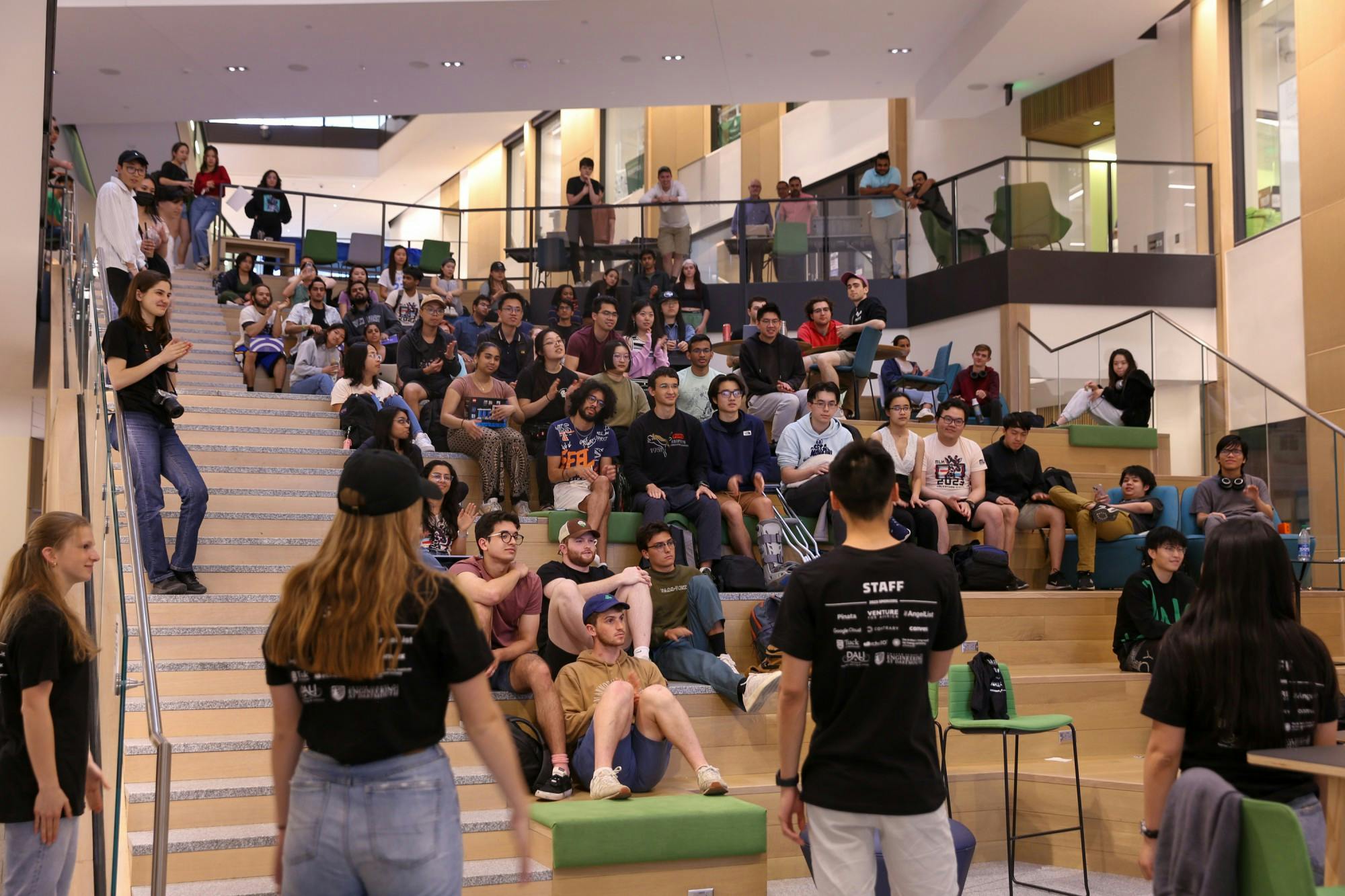On May 5, the Digital Arts Leadership and Innovation Lab celebrated its ten-year anniversary. Three computer science department faculty members — professor Lorie Loeb, professor Daniel Rockmore and staff member Tim Tregubov — founded the organization in 2013 to provide an opportunity for students to gain first-hand experience working on projects that could have real-world impact, according to Loeb.
While the lab now fosters more than 100 students working on 15 different projects, DALI initially began with just 15 students working on a project with Loeb. The first projects ranged from energy visualization to mapping complex data.
Tregubov described DALI as a “remarkably living organism” that continues to change and evolve with each new class of students. In the decade since its founding, the DALI Lab has expanded its work on campus beyond simply providing students with learning opportunities. The DALI Lab now works to build digital solutions in the form of mobile applications, virtual and augmented reality systems, websites and digital installations.
Eljo Kondi ’25, a project manager within DALI, highlighted a distinct aspect of the lab: The clients are not called clients, but are instead called “partners,” emphasizing the collaborative nature that DALI promotes. Partners range from Dartmouth professors, to alumni, startups and well-established companies.
The DALI Lab has partnered with institutions to create products with real-life applications. In 2021, the DALI Lab developed a website for Dartmouth’s Sexual Violence Prevention Project to “guide students through program offerings and registration, illustrate how the program relates to their experiences at Dartmouth and help [students] track their progress and growth.”
The DALI Lab has also partnered with organizations with national recognition: In 2015, it partnered with NASA to design a 360-degree virtual reality system for NASA’s National Space Biomedical Research Institute. The system provided an escape for individuals in space flight for long durations.
In addition to their larger projects, the DALI Lab also gives Dartmouth students an opportunity to fund their own projects through their termly competition — The Pitch. This contest allows student entrepreneurs two minutes to pitch their ideas for the chance to win $1,000 in funding or a partnership with the DALI Lab to further develop their product. There are prizes for the best pitch, which is determined by an audience vote, a startup prize which receives $1,000 in Magnuson startup funding and a build prize which wins a one term partnership with the DALI Lab.
These student-pitched projects — centered in impact work, computational science and design — inspire some students to apply to the DALI Lab. For Annie Qiu ’24, the real-world application of products of the DALI lab drew her toward Dartmouth in her preliminary college search.
“I was doing research into opportunities in [computer science] and the arts at Dartmouth and DALI popped up,” Qiu said. “I remember thinking, ‘These are things that I want to do,’’”
Once becoming a developer or designer for the DALI Lab, students are encouraged to take on leadership roles. Qiu is a designer at the lab, but she also works as a mini-series lead for a workshop series hosted by the DALI Lab. Leadership roles largely revolve around the individual interests of students.
Benedict Tedjokusumo ’23 initially worked as a developer when he joined the DALI Lab in Winter 2020, and is now a social lead for the lab.
“[Being a social lead] allows me to connect with other members of the lab and help foster a sense of community within the organization,” Tedjokusumo said. “I enjoy seeing members continue to hang out with each other. I’ve made so many close friends from DALI, and as social lead, I can give back by connecting other members together.”
Some DALI Lab members said that their time commitment to the lab varies depending on the roles they take on. Qiu estimated that she spent anywhere from 6 to 10 hours working on projects for DALI, while Tedjokusumo said that he typically spends 10 to 14 hours per week as a developer, and 7 to 10 hours per week as a social lead.
Both Qiu and Tedjokusumo emphasized compensation wasn’t an incentive for beginning their work at DALI, but it helps greatly in allowing them to devote so much of their time to the lab. Tregubov added that the DALI Lab relies on peer support and teaching, which allows students to embrace the learning process.
“People come in as learners, then they become doers, and finally they adopt the role of mentors who pass on their acquired knowledge to the next learners,” Tregubov said.




